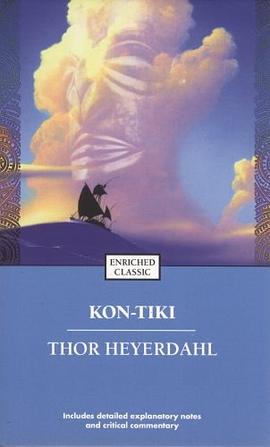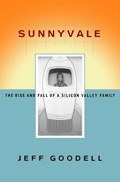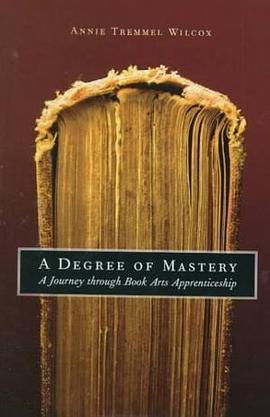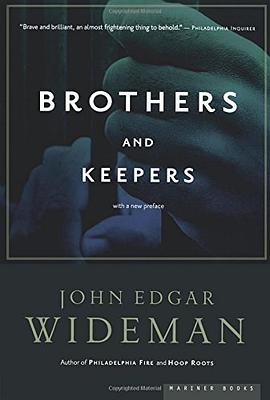

具体描述
review by AMY FINNERTY in New York Times May 4, 2008
Dharma Bum
In this memoir of a musical prodigy’s avatar as a Buddhist monk, Nikolai Grozni, the author of three novels published in his native Bulgaria, dwells on the “overriding, blissfully benumbing feeling of resignation to the moment” that keeps him in the Indian town of Dharamsala.
Having quit music school, Grozni takes vows of celibacy, memorizes texts and strives not to kill the bugs that carry malaria. For a time, his renunciation of art, sex and empiricism seem worth the sacrifice.
The refined Grozni is sometimes irked by monastic life. There are monks who fail, or decline, to grasp the history, science and joie de vivre that the worldly European takes for granted. There are all the persnickety protocols. Yet the author is drawn to the Tibetans living in the region, refugees from the place the Chinese call “China,” who possess an entrepreneurial knack and spiritual prestige that set them apart.
Having grown up in a “communist utopian society,” where he was forced to read “Das Kapital,” the author was studying jazz at the Berklee College of Music in Boston when he found that open-ended freedom left him numb. He fled girlfriends and music theory to live among escapees from less bourgeois afflictions.
In India, joyful spells of delirium (perhaps heightened by undernourishment) “made you feel like throwing your passport and money belt in the sewer and crawling next to a leper, ecstatic with the realization that you had nothing left to do and no place left to go.” Yet Grozni’s account is largely skeptical and demystifying. His is not the romantic Buddhism of five-star tourists and college freshmen. Subsisting in filth near the Dalai Lama’s compound, he begins to question his “giving up piano after 15 years of practice, ending friendships, destroying my parents’ hopes ... to be humiliated by some belligerent old monk who hated Westerners and couldn’t talk to people unless he was debating.” He comes to recognize “the ramparts and fortifications of man-made dogma,” and concludes that “one didn’t have to be particularly bright to memorize texts and debate emptiness.”
Grozni finds that other expats are an antidote to the more doctrinaire Buddhists. Central to his story is Tsar, a swaggering womanizer who has fled war-torn Sarajevo without a passport and dabbled in crime. “There’s nothing like a taste of healthy Balkan irreverence after overdosing on emptiness,” the author finds. Tsar and his “relentless, almost metaphysical battle with the bureaucracy of human existence” conflict with monastic propriety and become, for the author, a “manifestation of my own struggle to understand who I was.” In male adolescent style, the Bulgarian and the Bosnian circumvent the rules (which come, in Dharamsala, with a thousand abstruse nuances).
Women — among them the “prettiest Tibetan prostitute in town” — are deeply desired, but peripheral to the tale. Competition with other men, including philosophical debate and blood-sport chess, are more urgent concerns. Tsar keeps the author engaged with the world, even as Grozni strives to detach from materialism. The spiritualist memoir becomes a rollicking buddy narrative, as the lusty Slav seduces and brawls his way through mountain villages and evades the Indian secret service. Some of the anecdotes — Tsar tries to paraglide across the border — seem to have sprung from frat-house legend.
The descriptions of India’s daily grind, however, are intimate and precise. A Tata Motors truck gets stuck and the driver guns the engine in a spectacle of mindless futility. There is no maximum passenger load on public buses, and goats ride with people. The irritations of poverty intrude on metaphysical cloud-gazing, and the emptiness to which Grozni aspires sometimes seems to be just that. He absorbs vague, unsupported claims about the Buddha’s having had “turtle feet” from a holy man.
Capricious senior monks hold court, and Western students like Grozni are supplicants, touching the hems of the enlightened. Grozni’s rooms are infested with rats. Amoebic dysentery, malaria and bothersome erections compound the earthly suffering. Yet male solidarity and, perhaps, a dread of ambition, marriage and children, keep Grozni invested in his transcendental project.
Disciplined and competitive, he tests himself in Buddhist debate, an aggressive form of discourse into which young monks channel their testosterone. He describes the declaiming and foot stamping as a social engineering project, similar to mustering an army of aimless youths and redirecting their drives: “Here, they enjoyed all the forbidden sweets, from rapidly pumped adrenaline to revenge, pride and victory. There was also something explicitly erotic in the way the monks enacted the master-slave archetype.”
Thus rechanneled, the author keeps his monastic vows intact for a respectable period. An irresistible — and game — young nun is resisted. But he’s an irredeemable Westerner. Inevitably, he abandons his vows, falls in love, writes “silly books” and drinks wine, having come to understand the profundity of those pleasures by giving them up.
http://www.nytimes.com/2008/05/04/books/review/Finnerty-t.html
作者简介
目录信息
读后感
评分
评分
评分
评分
用户评价
拿到《Turtle Feet》的时候,我以为它会是一本关于旅行或者冒险的书,毕竟“Turtle Feet”这个名字本身就带有一种奇特的想象空间。但当我翻开书页,我才发现,它远远超出了我的预期。这本书的内容,不是那种一览无余的壮丽景色,也不是那种惊心动魄的故事情节,而是更多地聚焦于人物内心深处的挣扎与成长,以及在平凡生活中所蕴含的非凡意义。《Turtle Feet》的叙事风格,如同涓涓细流,缓缓地流淌,却能滋润心田。作者的文字,细腻而富有画面感,他能够捕捉到最微小的细节,并将它们放大,使其成为故事中不可或缺的一部分。我常常在阅读时,会不由自主地想象出书中的场景,人物的表情,甚至是他们所处的环境的气味。这种沉浸式的阅读体验,让我感觉自己仿佛真的参与到了故事之中,与人物一同经历着他们的喜怒哀乐。书中人物的塑造,也非常饱满和立体,他们不是脸谱化的角色,而是活生生的人,有着自己的烦恼,自己的渴望,自己的坚持。我能够理解他们的选择,也能够体会他们的痛苦。这本书,没有刻意的煽情,没有戏剧性的冲突,但它却能深深地触动我的内心,让我反思生活的意义,人生的价值。它教会我,即使是在最平凡的生活中,也蕴藏着无限的可能,只要我们用心去感受,去发现。
评分初次拿起《Turtle Feet》,我怀揣着一份对书名本身的好奇,一种莫名的联想,仿佛看到了某个古老传说中,拥有陆行巨龟之足的神祇,又或是某个孩童笔下笨拙却充满力量的奇妙生物。而当翻开第一页,我便被一股沉静而悠远的氛围所包裹,仿佛被拉入了一个缓慢流淌的时空,一切都带着一种原始的、未被现代节奏打扰的韵律。《Turtle Feet》并非那种一眼就能看穿其全部意图的书,它更像是一片深邃的湖泊,表面平静,水面之下却暗流涌动,隐藏着无数等待被探索的秘密。作者的文字,像那些爬行在古老岩石上的苔藓,细腻而富有生命力,一点点地渗透进读者的心灵。我能感受到一种宏大的叙事基底,但它并没有以直接的、宏观的视角呈现,而是通过极其微小的细节,通过人物内心的波动,通过环境的细致描绘,缓缓地搭建起一个完整而庞大的世界观。我试图去捕捉那些一闪而过的意象,那些似有若无的线索,它们如同散落在海岸边的贝壳,每一枚都承载着一段故事,每一枚都指向着更广阔的海洋。这本书需要耐心,需要沉浸,它不像快餐文化那样追求瞬间的冲击,而是更像陈年的佳酿,需要时间去品味,去感受其醇厚的底蕴。我尤其喜欢作者在描绘自然景物时所展现出的那种虔诚,仿佛他本人就置身其中,用最真挚的情感去触碰每一片叶子,去聆听每一阵风的声音。这种对细节的极致追求,使得书中的世界跃然纸上,触手可及。读《Turtle Feet》,就像是在一场漫长而宁静的旅途中,每一步都踏实而有意义,每一次回望,都能发现新的风景。
评分当我第一次看到《Turtle Feet》这本书名的时候,我脑海中涌现出各种各样的画面,有笨拙而坚定的步伐,有缓慢而执着的生命,有来自远古的低语,有大地母亲的呼吸。而当我真正翻开这本书,我发现,它比我想象的要更加深邃,更加富有哲思。《Turtle Feet》的文字,有一种独特的节奏感,它不疾不徐,却能牢牢抓住你的心。作者的笔触,细腻而富有力量,他能够用最简单的词语,构建出最复杂的意境,能够用最寻常的人物,展现出最深刻的人性。我尤其着迷于他对生命本质的探讨,那些在看似平淡的故事背后,隐藏着对存在、对意义、对联系的深刻思考。书中的人物,也不是那种非黑即白、标签化的角色,他们有自己的困境,自己的挣扎,自己的迷茫,但同时,他们也拥有着坚持和希望。我能够理解他们的选择,也能够体会他们的痛苦。这本书,没有轰轰烈烈的爱情,也没有跌宕起伏的悬念,但它却能够以一种极其温柔而深刻的方式,触动你内心最深处的情感,让你去思考,去感悟。它让我明白,生命中最珍贵的,往往不是那些瞬间的辉煌,而是那些缓慢而坚定的前行,以及在过程中所收获的理解与成长。
评分《Turtle Feet》这本书,就像是一杯陈年的老酒,初尝时可能觉得平淡无奇,但随着时间的推移,其醇厚的香气和浓郁的口感便会慢慢释放出来,令人回味无穷。它没有那种快节奏的悬念,也没有那种令人喘不过气的紧张感,更多的是一种静谧而深邃的氛围,能够将人温柔地包裹进去。《Turtle Feet》的文字,极其考究,字里行间都流露出作者对语言的驾驭能力,以及他对生活细节的敏锐观察。我尤其喜欢他对于环境描写的细致入微,仿佛他本人就置身于那个场景之中,用最真挚的情感去描绘每一处景致,每一个角落。这种描绘,不仅是为了衬托故事,更是为了营造一种意境,一种能够引发读者内心共鸣的意境。书中的人物,也都不是那种完美无缺的英雄,他们有各自的缺点,有自己的挣扎,有迷茫的时候,也有坚持的时候。正是这种真实,让他们显得更加生动,更加 relatable。我能够理解他们的选择,也能够体会他们的困境。这本书,没有惊天动地的事件,也没有荡气回肠的爱情,但它却能够以一种极其温柔的方式,触动你内心最柔软的地方,让你去思考,去感悟。总而言之,《Turtle Feet》是一本值得反复品读的书,它不像一次性的消费品,而是像一位老友,总能在你需要的时刻,给你带来一丝慰藉,一份启发。
评分初读《Turtle Feet》,我便被它那股独特的、仿佛带着泥土芬芳的气息所吸引。它不像某些书籍那样,上来就抛给你一堆令人眼花缭乱的元素,而是以一种非常质朴、非常接地气的方式,徐徐展开一个故事。《Turtle Feet》的魅力,在于它对生活最本真状态的描摹。作者的笔触,不带丝毫的矫揉造作,却能将平凡的生活场景描绘得生动而富有感染力。我仿佛能闻到书中人物身上散发出的淡淡汗味,感受到他们指尖的粗糙,听到他们疲惫却充满希望的呼吸。书中人物的塑造,也同样真实而立体。他们不是完美的英雄,也不是全然的恶棍,他们只是普通人,在生活的洪流中挣扎,在现实的压力下前行。我能够理解他们的选择,也能够体会他们的无奈。这本书,没有惊天动地的事件,也没有刻骨铭心的爱情,但它却能够以一种极其温和的方式,打动你的内心,让你去思考,去感悟。它让我明白,即使是最微不足道的生命,也拥有着不容忽视的光芒,而真正的力量,往往就蕴藏在那些看似平凡的坚持之中。
评分第一次接触《Turtle Feet》,就被这个独特的名字所吸引,它仿佛带着一种古老而神秘的气息,让我对书中内容充满了期待。而当我真正沉浸其中时,我发现,《Turtle Feet》并非如我想象的那样,是一个简单的故事,它更像是一幅徐徐展开的画卷,每一笔都充满了深意,每一处都值得细细品味。作者的文笔,细腻而富有张力,他能够用最朴素的语言,描绘出最动人心魄的场景,能够用最寻常的人物,展现出最深刻的人性。我尤其着迷于他对人物内心情感的刻画,那些隐藏在言语之下的思绪,那些在沉默中涌动的波澜,都被他用文字一一捕捉,并呈现给读者。这种细腻的笔触,让书中的人物不再是冰冷的符号,而是鲜活的生命,他们有血有肉,有爱有恨,有希望有绝望。我常常在阅读时,会不由自主地将自己代入其中,去感受他们的喜怒哀乐,去体会他们的困境与选择。这本书,没有轰轰烈烈的爱情,也没有惊心动魄的冒险,但它却能够以一种极其温柔的方式,触动你内心最深处的柔软,让你去思考,去感悟。它让我明白,即使是在最平凡的生活中,也蕴藏着不平凡的意义,只要我们用心去感受,去发现。
评分《Turtle Feet》给我的感觉,就像是在一个被遗忘的角落里,偶然发现了一本尘封已久的日记。它不是那种哗众取宠的故事,也不是那种一眼就能猜到结局的煽情之作。相反,它以一种近乎耳语般的低语,一点点地侵入我的思绪,将我带入一个复杂而微妙的情感世界。《Turtle Feet》的魅力在于它的含蓄,在于它留给读者的思考空间。书中人物的内心独白,那些看似平淡的对话,背后都潜藏着巨大的张力,如同冰山下的暗流,一旦被触及,便能激起层层涟漪。我发现自己常常在阅读过程中停顿下来,去回味某个词语,去揣摩某个动作的深层含义,去试图理解人物在特定情境下的真实动机。作者的笔触是极其细腻的,他擅长捕捉那些转瞬即逝的情绪,那些难以言说的微妙感受,并将它们用文字凝练出来,让读者能够感同身受。我感觉到,《Turtle Feet》并非只是讲述一个故事,它更像是在剖析一种人性,一种在现实的磨砺下,在时间的流逝中,逐渐显露出的复杂与多面。它让我反思,在平凡的生活中,我们是否也曾忽略过身边那些同样深藏的故事,是否也曾低估过那些看似微不足道的瞬间所蕴含的力量。这本书没有明确的善恶二元对立,更多的是灰色地带的探索,是理解与包容的召唤。我享受这种缓慢而深刻的阅读体验,它逼迫我去审视自己的内心,去与书中的人物进行一场无声的对话。
评分《Turtle Feet》这本书,给我的第一感觉是它的“沉静”。它不是那种能够瞬间抓住你的眼球,让你肾上腺素飙升的书。相反,它更像是一片宁静的港湾,让你在喧嚣的世界里找到片刻的安宁,然后慢慢地,你会被它的氛围所吸引,被它的故事所感染。《Turtle Feet》的叙事,是缓慢而细腻的,作者的文字如同精雕细琢的工艺品,每一句话,每一个字,都充满了考究。它不会急于让你明白一切,而是让你自己去感受,去体会,去挖掘。我尤其欣赏他对环境描写的细致入微,仿佛你能够身临其境,感受到空气的温度,闻到泥土的芬芳,听到远处传来的微弱声响。书中的人物,也不是那种脸谱化的角色,他们有自己的缺点,有自己的挣扎,也有自己的执着。我能够理解他们的选择,也能够体会他们的困境。这本书,没有跌宕起伏的情节,没有刻骨铭心的爱情,但它却以一种不动声色的方式,触动你内心最柔软的地方,让你去反思,去审视。它让我明白,真正的成长,往往并非来自于惊天动地的事件,而是来自于那些在平凡生活中,一点一滴的积累和觉醒。
评分《Turtle Feet》这本书,给我的第一印象就是它那股扑面而来的“稳”和“厚”。它不像那些节奏明快、情节跌宕起伏的书籍那样,能瞬间抓住你的眼球,让你沉迷其中。相反,它更像是一个经验丰富的老者,坐在你对面,不疾不徐地讲述着他的人生故事,而你,则需要静下心来,仔细聆听,才能品味出其中的深意。《Turtle Feet》的文字,有一种沉甸甸的分量,每一句话,每一个字,都仿佛经过了千锤百炼,没有一丝多余,也没有一丝轻飘。我尤其欣赏作者在构建世界观时所展现出的那种匠心独运,它不是通过大段的背景介绍,而是通过人物的行动,通过他们所处的环境,一点一点地展现在读者面前。这种“润物细无声”的叙事方式,让我仿佛置身于那个世界之中,亲身去感受它的呼吸,去触摸它的脉搏。书中的人物,都不是完美的,他们有优点,也有缺点,有执着,也有迷茫。但正是这种不完美,让他们显得如此真实,如此 relatable。我发现自己常常在阅读过程中,将他们的经历与现实生活中的一些情境进行对比,从中找到共鸣,也从中获得一些新的启发。总而言之,《Turtle Feet》是一本需要沉下心来,慢慢品味的佳作,它不像快餐,而是像是一顿精心准备的盛宴,需要你细嚼慢咽,才能领略到其真正的美味。
评分《Turtle Feet》这本书,给我的感觉是一种缓慢而深沉的沉浸。它不像那些情节紧凑、一蹴而就的书籍,能让你在短时间内迅速进入状态。相反,它更像是在一片宁静的湖面上,你轻轻投入一颗石子,然后看着那一圈圈涟漪,在你的心中缓缓扩散开来。《Turtle Feet》的叙事,是内敛的,它不会急于告诉你一切,而是让你自己去感受,去体会,去领悟。作者的文字,如同精美的丝绸,光滑而富有质感,能够细腻地勾勒出人物的情感,以及他们所处的环境。我尤其欣赏他对细节的把握,那些不经意间流露出的微小之处,却往往蕴含着巨大的信息量,能够让你对故事的理解更上一层楼。书中的人物,也不是那种非黑即白的概念化角色,他们有自己的挣扎,有自己的软肋,也有自己的坚持。我能够理解他们的选择,也能够体会他们的痛苦。这本书,没有跌宕起伏的情节,没有惊心动魄的冲突,但它却以一种不动声色的方式,触动你的内心,让你去反思,去审视。它让我明白,真正的力量,往往隐藏在最平凡的日常之中,而最深刻的改变,也往往源于最细微的觉醒。
评分 评分 评分 评分 评分相关图书
本站所有内容均为互联网搜索引擎提供的公开搜索信息,本站不存储任何数据与内容,任何内容与数据均与本站无关,如有需要请联系相关搜索引擎包括但不限于百度,google,bing,sogou 等
© 2026 book.wenda123.org All Rights Reserved. 图书目录大全 版权所有




















